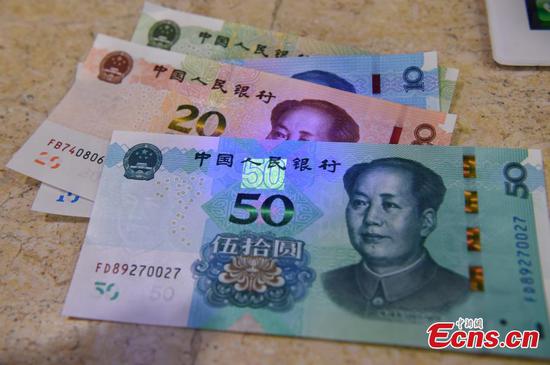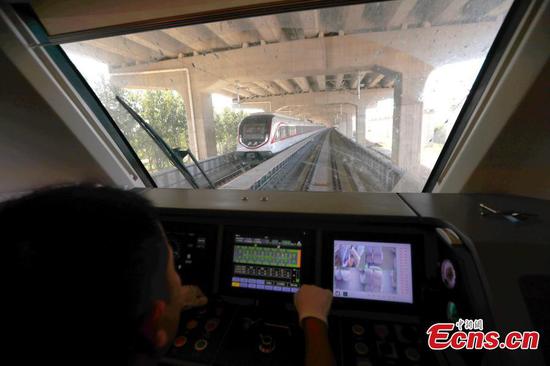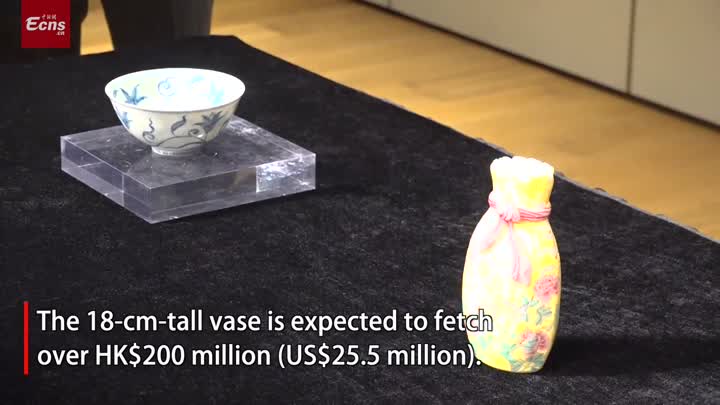A friend of mine recently withdrew her investment from a peer-to-peer, or P2P, lending platform. What worried her was the high investment return the platform promised.
In an environment where the key market interest rate continues to drop amid a slowing economy, the platform still offers investors a return on investment as high as nearly 10 percent. "This doesn't look reasonable to me, so I took my deposit back," she said.
She is not alone. The online lending sector is seeing a wave of investor redemptions amid fears of rising defaults. As the economy slows, more P2P platforms are forced to shutter amid an intensifying regulatory crackdown on the scandal-ridden sector.
The sector was once an attractive investment channel that offered high annual yield of more than 10 percent, compared to less than 2 percent returns from one-year bank deposits.
Many middle-income families had poured their savings into P2P lending platforms due to perceived lack of attractive alternative investment avenues. The property market is considered too speculative while the stock market tends to be volatile and unpredictable.
The rapid expansion of the P2P sector is also supported by the rising financing demand of the small business owners and individual borrowers who are often neglected by the big banks. The P2P platforms have plugged the financing gap in China's underdeveloped consumer credit market.
Ideally, the business model of P2P platforms serves a perfect role of matching up people looking to invest with people looking for funding, often with promises of double-digit returns on short-term investments.
But now the sector's future prospects are in question. Investors' anxiety has quickly spread to the P2P platform owners. The latter fear that investor redemptions en masse around the same time would create the situation of a bank run that could lead to serious liquidity crisis.
Intense regulatory pressure and policy uncertainty are other concerns as they could mean suspension or even complete shutdown of their operations.
Regulators also appear to be in a difficult position as they are still working on the detailed regulations, trying to catch up with the sector's rapid growth and hoping to weed out illegal practices and rein in financial risks without causing panic among investors.
The dramatic rise and fall of the online lending industry in China has posed a very serious challenge for policymakers: how to come up with appropriate regulatory framework that can encourage innovation while effectively protecting investors' interest? And how to prevent bad players from taking advantage of new technology for illegal activities?
The administrative order of cutting loan values and restricting number of borrowers and creditors on the P2P platforms has caused difficulties in the sector as some well-established players with normal operations begin to feel the liquidity pressure and worry about the abrupt changes in their capital chain.
Some experts believe that downsizing the sector could make it easier for regulators to launch the much-anticipated registration process, a crucial step to standardize the sector and bring order back to the business.
While some platforms have exited the business amid regulatory uncertainty, many still hold faith in the online lending business as they believe that funding demand of small businesses and rural residents will only grow bigger in the future and the technology advancement will help lower transaction cost, which means easier access to financing for people in need of funds.
Technology is a double-edged sword. It could be a breeding ground for fraud. But the expectation is that as financial technology continues to develop, it will also empower the regulators to effectively identify risks and wrongdoers so that the good players in the P2P sector could survive and grow more robust.


















































